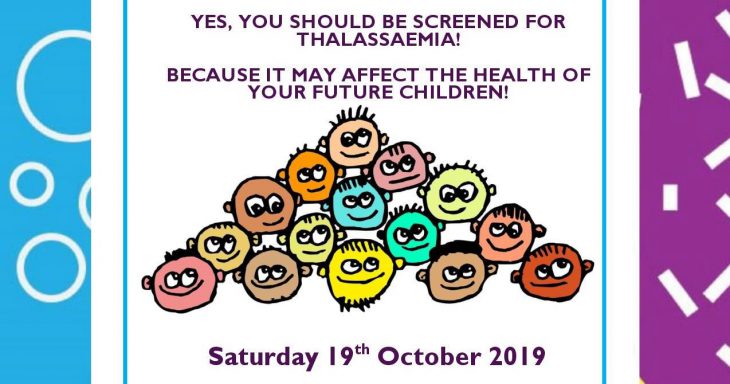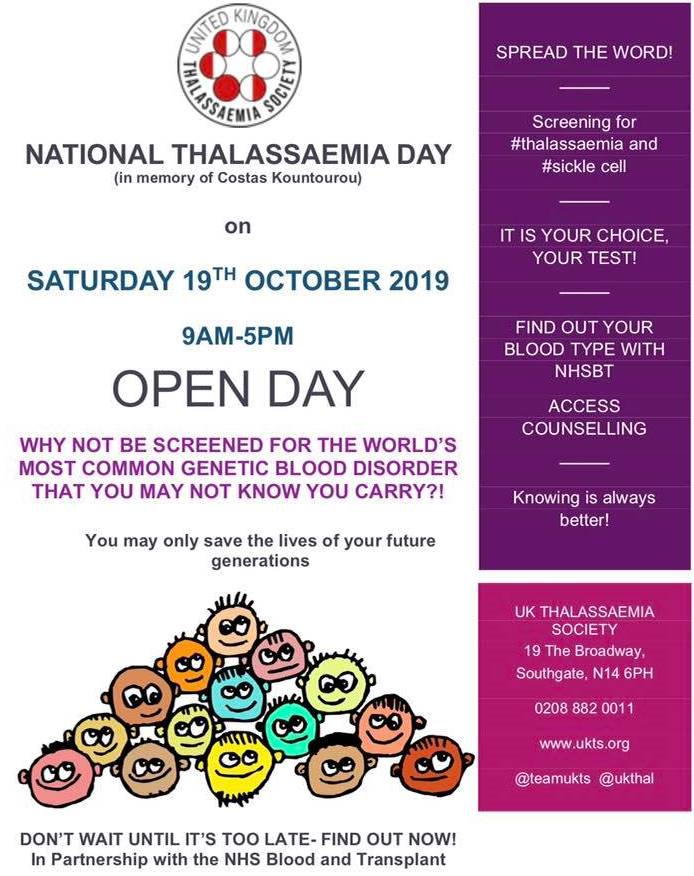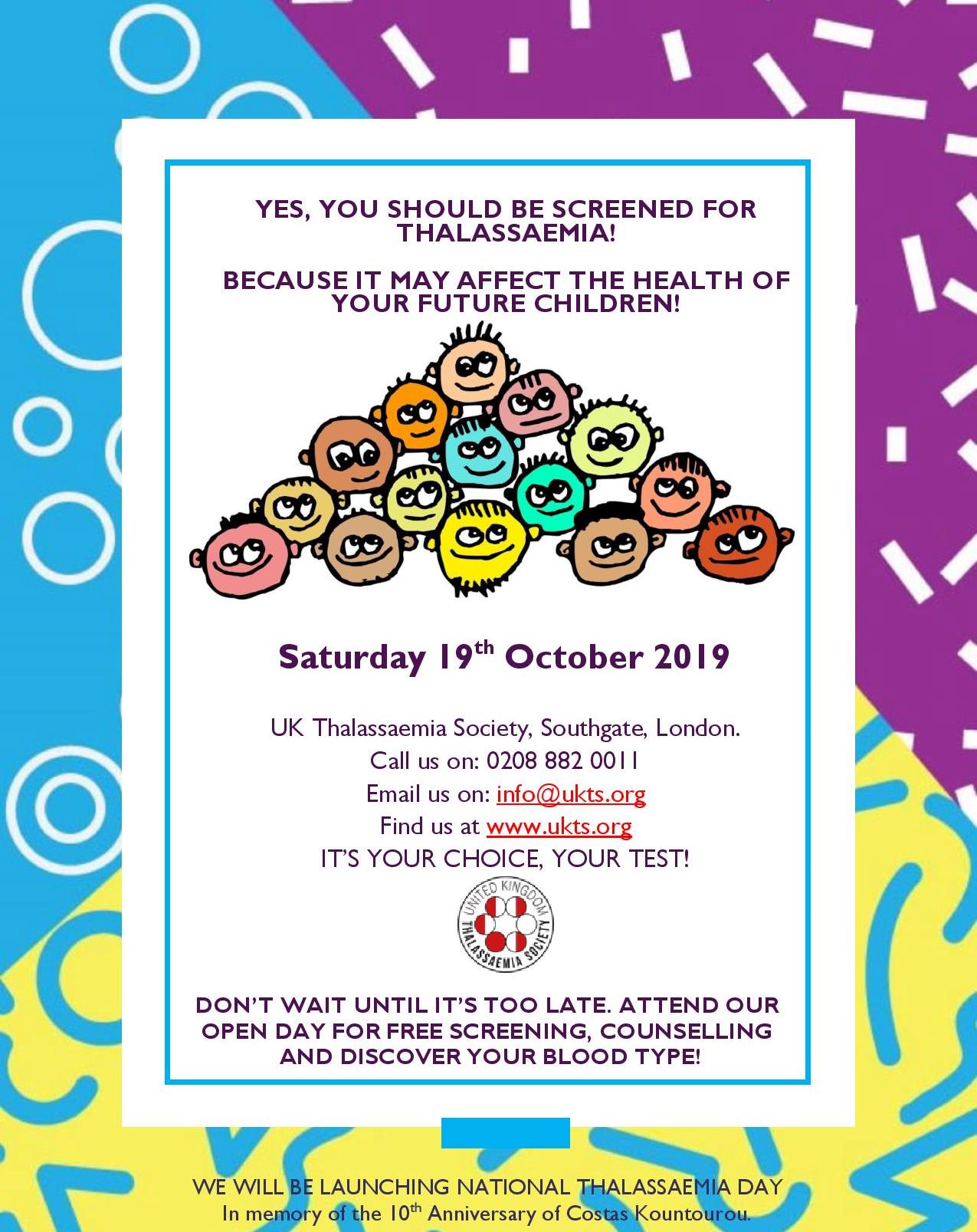
The United Kingdom Thalassaemia Society (UKTS) will be launching National Thalassaemia Day (UK) on 19th October 2019. This date has been chosen to mark the 10-year anniversary of the passing of Costas Kountourou, a prominent figure in the world of thalassaemia.
On this date, the charity will open its doors to the general public to walk in and be tested for thalassaemia and other conditions.
At the open day UKTS will:
• Offer free screening to the general public for thalassaemia and sickle cell trait.
• Offer counselling and guidance (for positive test results).
• Partner with NHSBT for “know your type” blood testing / promote the need for blood donation.
• Offer free screening for Hepatitis C and other infected diseases.
Whilst these are the main activities UKTS is concentrating on, additional events are being planned for the day. The society is extending an invitation to all interested to join them on the 19th October 2019 as this is a major awareness-raising event. Given that there are over 300,000 carriers with thalassaemia in the United Kingdom and that it is a hereditary condition, clearly there are many members of the public who could benefit from thalassemia screening.
Thalassaemia is a chronic blood disorder affecting the genes that are responsible for production of red blood cells. What this means is that patients with thalassaemia are dependent on regular blood transfusions throughout their lives. Without them, they would die in early childhood. Thalassaemia developed as an evolutionary response to malaria which is why it mainly affects those coming from regions such as Asia and South East Asia, the Mediterranean, South America, the Caribbean, Northern and Central Africa and the Middle East. Whilst it was initially prevalent in these regions, due to the migration of communities over the centuries, anyone can be at risk. In fact, 10,000 babies are born with thalassaemia every year. This is why it is so important to be screened.
In the UK, women are typically offered screening after they become pregnant despite it being available to everyone at any point in time. The blood test is usually done between 8-10 weeks. If the expectant mother has a positive result, the father of the baby is then screened. This process can sometimes, despite the best efforts by the NHS team, take the pregnancy up to 16 weeks, at which point it may be too late.
All it takes is a blood test to find out if you carry the gene! It’s better to be informed now so you can protect your unborn children, rather than be surprised later.
Please support this event in order to prevent children being born with thalassaemia.

On Saturday 19th October 2019

UK Thalassaemia Society flyer